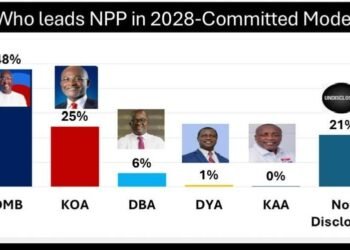SEND Ghana, a Non-governmental organisation has requested government to churn out annual budget statement, execution and performance reports to the public. It further proposed that detailed information should include revenue collected, expenditure and debt incurred.
A statement signed by Country Director, George Osei-Bimpeh, suggests that citizens should be informed about budget implementation progress”.
It further revealed that budget credibility is fundamental to government in “accurately and consistently” meeting their expenditure and revenue targets.
Commenting on budget credibility, it stated that the subject proffers to understand why governments deviate from these commitments. According to the group, the lack of implementation of budgets will result in a shift in spending priorities.
“At its core, budget credibility is about upholding government commitments and seeks to understand why governments deviate from these commitments”.
Moreover, SEND Ghana believes that “governments consistently deviating from their budgets risk an erosion of public trust”.
This, it reveals, is relevant to the SDGs and specifically recognized by SDG indicator. This, assesses whether governments implement their budgets.
SEND Ghana also observed poor budget execution and overdependence on donor funding across Health, Water, Sanitation and Hygiene, Education, Agriculture, Social Protection.
It suggested that the overdependence posed a threat to attaining Ghana Beyond Aid. It suggested that the overdependence posed a threat to attaining Ghana Beyond Aid. As a result, accomplishing the Sustainable Development Goals will be ineffective.
Fiscal performance of Ministries Departments
The 2021 budget statement, SEND Ghana suggests did not indicate the actual fiscal performance of Ministries Departments and Agencies. It also averred that, the overspending was rife in the education sector particularly in terms of compensation.
“Such information is relevant for assessing previous year’s performance; based on which projections are made for the current and other years.
“In 2018, the ministry spent GHS 12.77 billion which was above its allocation of GHS 9.25billion in nominal terms. Even though the continuous overspending in the sector denotes fiscal indiscipline; the absence of information on progress in expenditure and policy intervention for the year ending 2020 cannot be overlooked”
Therefore, SEND Ghana called on government to be “consistent with the provision of budget information on all sectors”.
Deficit in budget allocation to WASH
SEND Ghana further disclosed that the WASH sector has particularly and consistently experienced budget credibility crisis as actual disbursements are concerned. The 2018 performance report of the sector showed 30 percent of approved budget released to the ministry. Also in 2019, government’s approved release was 6.32 percent.
The implications of such inconsistencies, the report reveals will mean that CAPEX suffered the most. It similarly opined that there were some comstraints in delivery of services to citizens.
Also, projected budget allocation to the Ministry of Fisheries and aquaculture development, per the report, has seen a budget increase by 163.6 percent in 2021.
“This is in line with calls for increased funding for the development of the sector. However, our analysis over the years show that execution rates have been low, owing to non-releases of substantial amounts of approved budgets for spending… similarly, in 2019, the ministry spent less than half (45.7 percent) of its approved budget of GH¢59,592,448”.
Read Also: Farmers call for investment in agro-ecology























